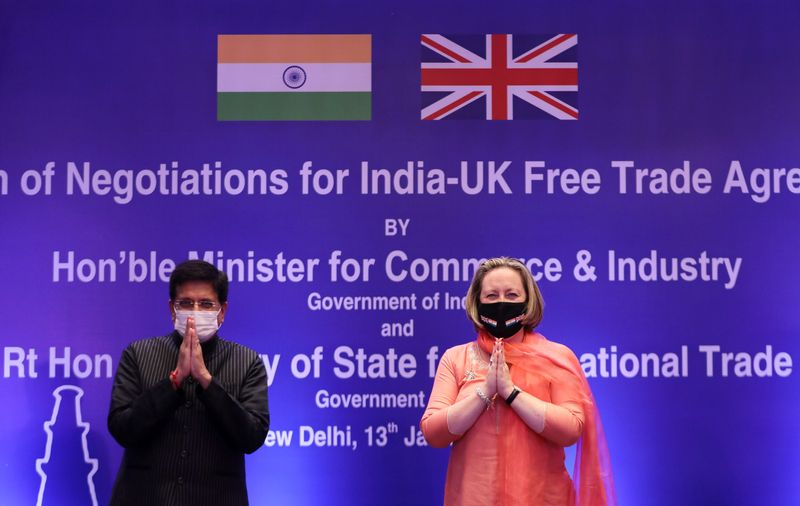
India and the UK are still far from a free trade agreement – sources
He said India and Britain were struggling to make progress in free trade talks because of disagreements over some key tariff lines and investment protection rules, making an agreement unlikely during Prime Minister Narendra Modi’s second term, which ends next year.
A government official familiar with the matter said the two countries could not agree on concessions on Indian tariffs on cars and alcoholic beverages.
A second government official said that in addition to the tariffs, Britain was also urging India to agree to strong investment protection provisions, either as part of the deal or in a parallel investment treaty.
“Britain pressed for investor protection if it were to go ahead with a final deal,” said the person with direct knowledge of the talks.
The deal between India and the UK is crucial for New Delhi, which hopes to become a bigger exporter while giving the UK wider access to whiskey, high-end cars and legal services.
Both countries aim to double bilateral trade by 2030 through such an agreement.
For India, the agreement with the UK will be the first with a developed country, after it signed an interim trade agreement with Australia last year. It comes at a critical time for Modi, who wants to boost India’s business-friendly image ahead of national elections next year.
On the other hand, Britain has prioritized an agreement with India as part of its Indo-Pacific foreign policy, which aims to strengthen ties with the rapidly growing economies in the region.
The second government official directly involved said the main dispute over investment protection provisions is Britain’s requirement to allow its companies to resort to international arbitration in the event of a dispute without first going to Indian courts.
A third senior government official said this would be a clear departure from the current Indian requirement that companies must first exhaust their local remedies, which is unacceptable to the Indian government.
“November was a soft period. But it doesn’t look like this will happen until next year at least. Maybe after the general elections in India,” a fourth government official told Reuters.
General elections will be held in both countries next year, as India’s Modi seeks a rare third term, while British Prime Minister Rishi Sunak faces a difficult electoral test after a turbulent period for the Conservative Party.
At the end of April, countries were able to conclude discussions on a larger number of seasons than in December. They agreed on 13 of the 26 chapters of the Charter.
Two sources said the two countries also ruled out the possibility of an interim agreement.
All of the officials spoke to Reuters on condition of anonymity because trade deal negotiations are private.
India’s ministries of commerce, finance and external affairs did not respond to a request for comment.
A spokesman for Britain’s Trade Ministry said the two countries were “determined to work towards the best possible deal for both sides”.
“We are clear that we will only sign if we have an agreement that is fair, balanced and ultimately in the interest of the British people and the economy,” the person said.
Sunak’s approach of emphasizing quality over speed of a deal contrasts with Boris Johnson, who, as prime minister, had set Diwali as a deal deadline in October last year, which was later missed under his successor Liz Truss.

“Travel enthusiast. Alcohol lover. Friendly entrepreneur. Coffeeaholic. Award-winning writer.”
